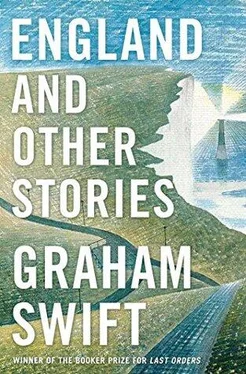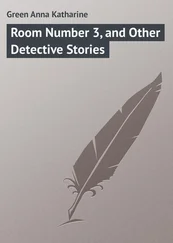Wes wasn’t his enemy. In some deep-down way he didn’t even mind his mum having Wes. He was something she needed. Maybe she got money from Wes. In any case she got something she needed. He didn’t even mind them being at it right now like animals and making their noises, even as he was standing here in the kitchen. It was just how it was. He understood very clearly now that it might also have been just how it was with his father, twelve years and more ago. So if he stabbed Wes it would be like stabbing his father. Which might have been the best and the right thing to do. Except he wasn’t around then to do it. If he’d stabbed his father then he’d never have been around at all. Which didn’t make any sense.
His father’s name was Winston. That was all he knew. Winston. Wes. Maybe his mother had invented the name Winston. She had to have a name, at least, to give him. His father had cleared off twelve years ago. Just like Wes would. And had never come back.
Outside, there were noises too, the noises of kids playing. Just kids playing, kids younger than him, cackling and screeching. Both the noises inside and the noises outside were like the sounds of animals.
Wes would emerge and look, and flicker, and clear off. Then there’d be quite a long gap, and then his mother would emerge. Then they’d look at each other too. It would be like him and Wes, but his mother would always win. When she emerged she’d have a deliberately lazy way about her, which he hated, as if she wasn’t going to hurry for anyone, and once when they’d looked at each other she’d thrown up her chin and said, ‘So what are you looking at?’ The very same words Wes had used once and failed. But his mother would always win. She was the only one who could.
And she was the only one he was really afraid of. In all the world. He was afraid of her even now. Once, his mother had needed to come and collect him from the police station. At twelve years old, or less, you could laugh at the police. He wasn’t afraid of the police. But when his mother had come to the police station she’d spoken to them all very obediently and softly, as if she were a child herself.
Then on the way home she’d changed, she’d kept trying to say things, but she couldn’t, her mouth had seemed not to know how to work. Then when they’d got home her mouth had tried again, but not worked either, and then she’d beaten him — hard, with the full swing of her arm and the full whack of her hand. It was an attack. It hurt. But he’d known she was only hitting him because she was incapable of finding the right words, she might as well have been hitting herself. She was hitting him because in some way she was afraid. He understood this. And yet he was afraid of her. His own mum.
Even now he was afraid of her.
Fear was a strange thing. Even right now, with these noises that were like a permission, he was afraid of the simplest thing. To take a knife from a drawer.
His mother might not even notice it was missing. Since when had she taken stock of what there was in the kitchen drawer? And even if his mother were to say later, ‘Where’s my knife? Where’s that knife?’ he might simply say he didn’t know, and shrug. It wasn’t his knife. Or he’d say it must have got chucked in the waste bin by mistake. Plenty of things did, including once one of her big orange bangles. Or he could say that it was another of the things Wes must have walked off with.
He could simply say that. ‘Wes took it.’
And if it really came to it, if his mother looked at him, not saying anything, but with a look that said, ‘You took it, didn’t you, Daniel?’ then he could look back at her with a look that said, ‘Well? So? So? What did you ever do to prevent me? What did you ever do to stop me going down this road? What did you ever do that was so right and good that you could tell me that taking a knife from a drawer was wrong?’
But he wondered if he could actually do that — and win.
It was the easiest thing. What was the simplest way of getting a knife? But he knew it wasn’t simple, since he knew there was the question: Why did it have to be her knife? Why did he want it to be her knife? He knew this wasn’t so much a question now as a question that would come later. A question that might even be his excuse. And even now it seemed he could hear people, people in the future, asking him the question.
Because. . But couldn’t they see? Wasn’t it obvious? Because if it was her knife then anything he did with it — if he did anything — would have to have been done too by her. And if they didn’t see it (who were these people?) she would.
Because. . Because she could talk about her father. She could talk about him and she could even talk about his father, her father’s father. And when you got back to him, to his mother’s grandfather — he even knew that his name was Daniel — then you were talking about someone who’d stepped off the boat. You were talking about fucking Bridgetown, Barbados. She had all that, she belonged to all that, and if she didn’t know what to do with it then that was her problem.
He belonged with the brothers.
It was a line, she had a sort of line. But he didn’t have it or want it, no fucking thanks. And everyone knows what you can do with a line. Everyone knows that when you’re born there’s this cord, but it doesn’t stay there for long.
Where is the knife, Daniel? What did you do with the knife? (Who was saying this to him?) What did you do with the knife?
Where is my knife, Daniel?
It was only something she’d have bought in a shop once. In Hanif’s Handy Store. A cheap kitchen knife. He couldn’t remember when he’d last seen her use it for what it was meant for. Slicing a piece of chicken.
He heard the kids outside and the thought came to him that one day he’d remember this moment, he’d remember it very clearly and precisely as if he were twelve years old all over again. Standing here like this, hand over the drawer, not yet holding the knife. The smeared cartons. The kids outside. In his white school shirt with his tie insolently knotted so that just a few striped inches of it dangled from his neck.
He heard the noise his mother would start to make when things were getting near their finish. It was a rough gasping repetition of a single word, so rough and gasping you could hardly make out it was a word. It was like when she couldn’t find the words before she beat him. But it was a word, and it wasn’t a word that said don’t.
He put in his hand and took out the knife. It was the simplest, easiest, most ordinary thing, to take a knife from a drawer.
‘MRS KAMINSKI?’
‘That’s me, dear.’
‘I’m Dr Somerfield. I need to take some blood.’
‘Take as much as you like. It’s no good to me.’
‘We need to do some tests. Are you feeling more comfortable?’
‘You should work in an English hospital, dear, a nice girl like you. The National Health Service, it’s the best in the world.’
‘This is an English hospital. It’s St George’s, Tooting.’
‘It’s the way to Poland.’
‘Are you Polish, Mrs Kaminski?’
‘No, but I’m on my way to Poland.’
‘I need to ask you a few questions. Do you know how old you are?’
‘Ninety-one.’
‘Date of birth?’
‘March the 4th, 1923.’
‘And your first name?’
‘Nora.’
‘Can I call you Nora?’
‘Please yourself. How old are you, dear?’
‘Twenty-five. Do you know where you were born, Nora?’
‘Carshalton, Surrey.’
‘Do you know what month it is?’
‘Why?’
‘You had an accident. A funny turn. A fall, in the street. You were brought here. We’re trying to find out what caused it all. Do you know where you live?’
Читать дальше












